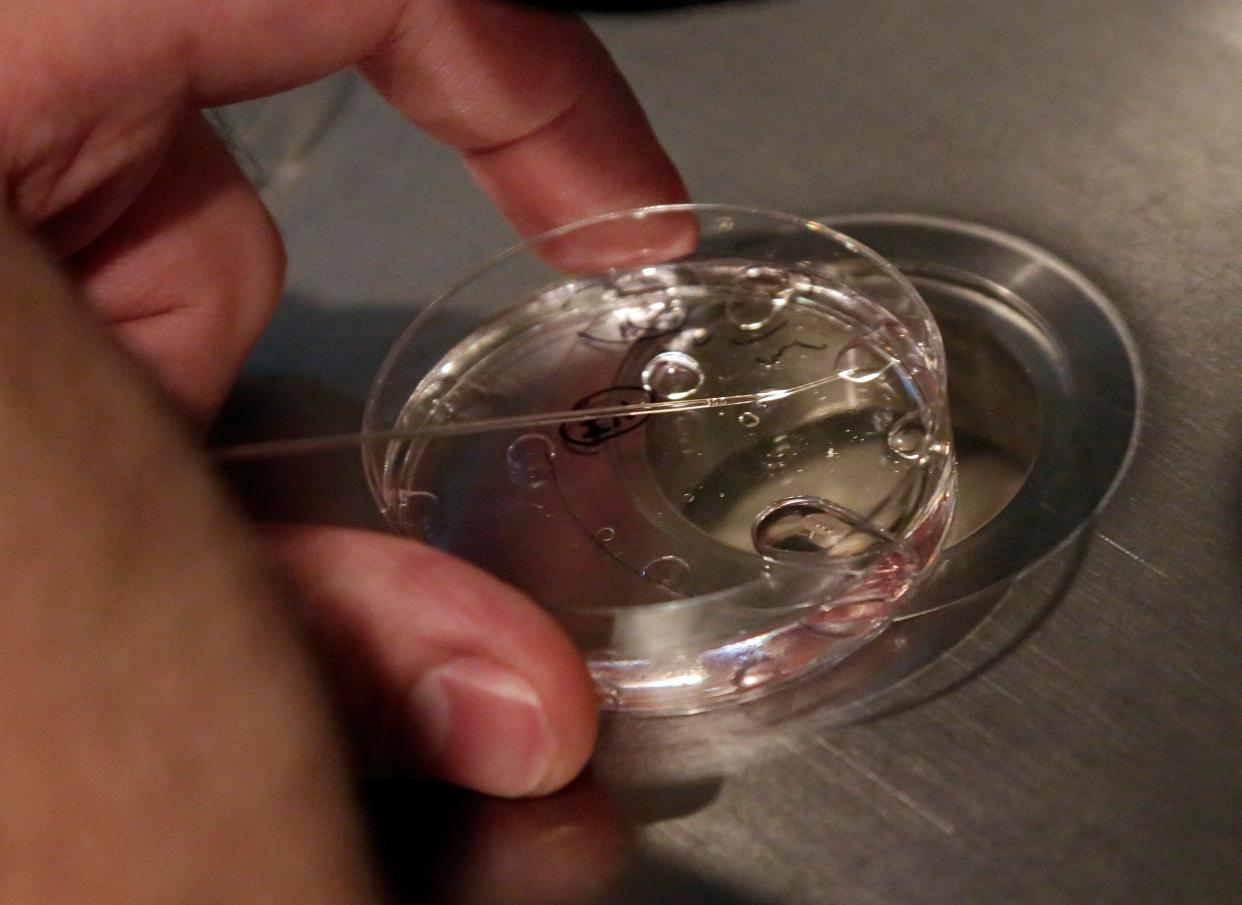Misguided Arizona bills could make it tougher for some to start a family

My daughters, Gianna and Francesca, are miracles of modern science.
My wife, Merissa, and I always knew we wanted children. But by the time we were ready, biology wasn’t on our side.
Fortunately, Merissa had frozen some of her eggs a few years earlier. With the help of vitro fertilization (IVF), we fulfilled our dream and brought two healthy children into the world.
More than 8 million babies have been born this way since the first such birth in 1978.
As a specialist in reproductive endocrinology and infertility, I’m proud to have deployed cutting-edge medicine to help many hundreds of other hopeful families share in our good fortune.
Now, however, I worry that my ability to do so could become severely restricted in my home state.
Arizona bills could limit fertility treatments
Amid a backlash against half a century of reproductive freedom, some Arizona senators have been trying to pass laws that could limit fertility treatment options.
During IVF, eggs are gathered from a woman’s ovaries and put together with sperm to promote fertilization. The resulting embryos are carefully cultured in the laboratory for up to seven days so they may develop into embryos that have reasonable chances for implantation.
With modern treatments, we can even test embryos to see if they contain the correct 23 pairs of chromosomes, giving them the best chance to result in a healthy baby.
Potentially viable embryos are then transferred to a uterus or frozen for use at a future date. Those found nonviable are typically discarded or donated for research.
Today’s state-of-the-art tests help women and their partners avoid the profound heartache of miscarriages and still-born births. That’s why, immediately after Roe v. Wade was overturned last year, I started to get panicked calls from patients.
Should they move their frozen embryos to other states? Would new laws prevent them from ensuring that their embryos were healthy before using them? Would the laws oblige them to use or continue storing any excess embryos once they had their desired number of children?
Bill could establish fetal 'personhood'
While I don’t discuss politics with my patients, I know that over the years they’ve included Republicans and Democrats. Yet their apolitical dream of having healthy children is at risk due to politicians like state Sen. Matt Gress, who introduced five pregnancy-related bills this past year.
In April, Gov. Katie Hobbs vetoed the Sen. Gress-sponsored House Bill 2427, which would have lowered the barrier to file aggravated assault charges against someone who knowingly attacks a pregnant person.
Like Gress’ other attempts, this was an indirect way to introduce the concept of “fetal personhood” into the law. Once that notion is established, there’s no limit to how much the government can work its way into our bedrooms and medical offices, as couples and patients make the most personal of decisions.
How anti-abortion extremists: Could secure state abortion rights
Many of my patients come to me in desperation and endure months, if not years, of arduous medical procedures in their quest to become parents. They don’t need to worry about criminal penalties, too.
Gress says his bills have nothing to do with abortion, and I’m sure he’d deny they target fertility treatments. But make no mistake: Unless we unite as voters to reject this line of thinking and those who would force it upon us, this is undoubtedly where they would lead.
That could impact how we handle embryos
If life is deemed to begin at conception — a religious precept that is certainly not shared by all religions — each embryo, even those that could never survive a pregnancy, must be protected as if it were a living child.
Anyone who chooses one embryo over another becomes a murderer.
As a doctor and parent, I’m deeply offended by this line of reasoning. My Hippocratic oath committed me to “do no harm,” and I treat each embryo with profound respect for the potential it embodies.
My calling is not to destroy life but to help create it.
My daughters, now 1 and almost 5, are shining examples of why I do what I do.
Which is why I’m so distressed at misguided laws that would deprive anyone else of the abundance of love that my wife and I share as a result of medical miracles and the reproductive liberties that we and countless others hold dear.
Shane Lipskind is a double board-certified obstetrician-gynecologist and reproductive endocrinology and infertility subspecialist who has been practicing medicine in Arizona for 10 years. Reach him at fertilitydocaz@gmail.com.
This article originally appeared on Arizona Republic: IVF and embryos could be in trouble, if Arizona lawmakers succeed

